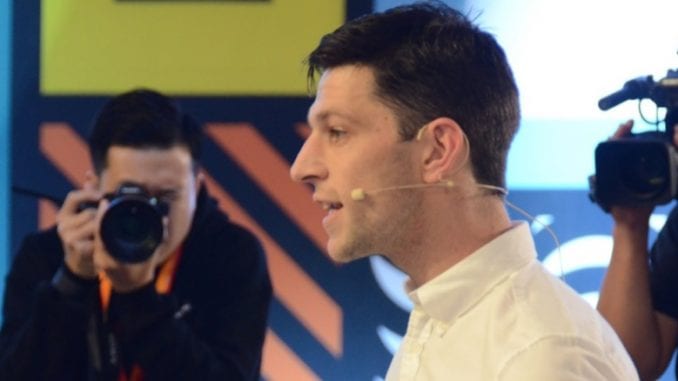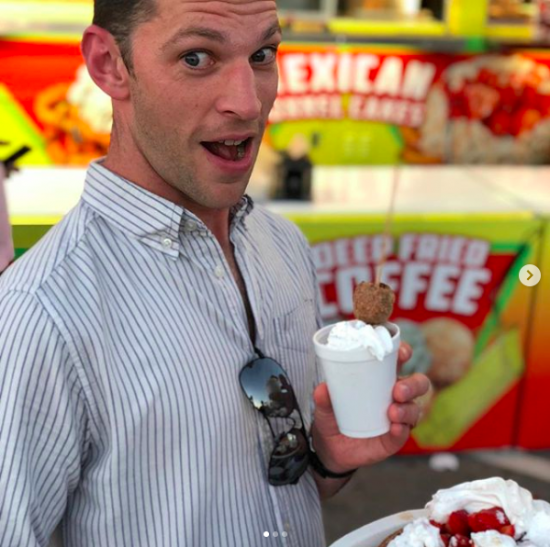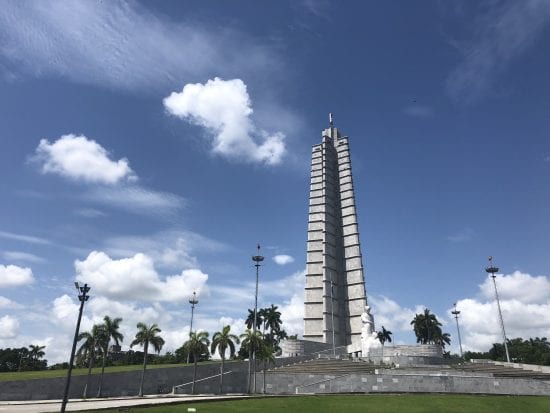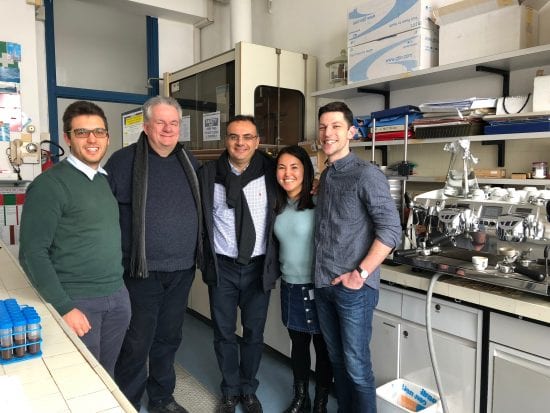
As Dale Harris’ year as 2017 World Barista Champion comes to a close, he looks back at some of the best moments and lessons learned.
BY CHRIS RYAN
BARISTA MAGAZINE ONLINE
Photos courtesy of Dale Harris
One year ago today, Dale Harris achieved the momentous feat of winning the World Barista Championship in Seoul, South Korea. After competing for nine years at the UK Barista Championship, Dale had finally taken the top spot and earned a spot in the WBC, and he seized the opportunity with the win on the world’s stage.
For the past year, Dale has enjoyed life as a World Barista Champion, making many coffee-focused journeys around the world and finding himself often in the spotlight talking about coffee. Along the way, he has continued his job as director of coffee at Hasbean Coffee. In honor of his one-year WBC reign coming to a close, Dale talked to us for a two-part interview about his experience; in part one here, he discusses the reality of being the WBC champ and his travels during the year.
Chris Ryan: Do you remember back in November 2017 what you thought the next year of your life would be like? How has the reality been similar or different to those expectations?
Dale Harris: Immediately after Seoul, for the first week or two, it was all a bit of a daze. I was super excited and super happy, but I was carrying on with my day job and trying to figure out what it might mean for the future. My expectation was that there’d be opportunities to travel, and that’s exciting, but it was something challenging to manage alongside my day job, my family, and real life. The reality was that actually, with Christmas coming up, not a lot really happened until the following year. There was lots of new interest, social media to deal with, and lots of interviews—but nothing really led to travel until the beginning of the next year. That wasn’t a bad thing, but it was different to my expectation. You don’t get home to a list of invitations or job offers, etc. I did have an early flurry of invitations to consult on roastery operations in countries I’d never visited, all of which I turned down because I’ve never roasted coffee in my life.

CR: What were two or three of the coolest experiences you had in your travels as WBC champ? Where did you visit that you’d always wanted to go? What was that experience like?
DH: I’ve had an incredible time over the last year, traveling to lots of places I never expected to visit: multiple visits to China, I visited Korea again, Malaysia, Indonesia, and Saudi Arabia. All of these trips have been exciting for me: I’ve met new people, eaten new food, had fun, and learned more about coffee around the world. The most exciting trips for me are all about the new experiences.
I was invited to speak at a gastronomic conference in Cuba. It was really exciting to talk about coffee to an audience of chefs and bartenders, and to visit a country that has a really different relationship with coffee than almost everywhere else in the world. Cuba produces coffee and also serves a very particular style of coffee, which are both completely separate from our ideas of specialty.

There’s no opportunity for the specialty pricing concept (more money for better green) in Cuba because the coffee price is set by the government and there are lots of complications around farming. So to visit a country where the normal narratives of specialty don’t easily apply and to talk about the ideas of specialty—and also about what being a barista can do, and how you can transform coffee through the way you make it—to an audience where most of these ideas were new was really special.
Over the course of the year, I had some great trips with Victoria Arduino and Nuova Simonelli, but I was also able to discuss what I wanted to do with them that would be a positive thing during my champion’s year. One concept that matched well with one of their existing plans was to get national champions together to train and learn before the World Barista Championship so that they could share and grow a bit more before they arrived on stage and really improve the quality of their experience being a national champion. This became the Champions Hub, and I was really proud to be a part of it. I really hope it continues next year, but in more locations making it more accessible for more competitors.

One unfortunate thing for me was that during my championship year, I didn’t get to make one of the few trips that I really, really wanted to make. Immediately after winning, I kind of made a promise to myself that I would visit El Salvador. A lot of my success came from the hard work that Ernesto Menendez had done with my coffee and I’ve never visited his farm. I have a strong emotional relationship with Salvadoran coffee, and some of my favorite people live there, but it just became—with all the other trips—too busy for me make that happen.
I also had to turn down the opportunity to join Ally Coffee on their champions’ trip to Colombia this year due to personal things going on in October, so since winning the championship, I haven’t been able to visit origin. I really hope that, now that my diary’s a little quieter and we have a new, awesome world champion, I’ll be able to make good on that in the coming months.
Check back tomorrow for part two of this interview, where Dale discusses lessons learned from serving as the World Barista Champion and much more.

